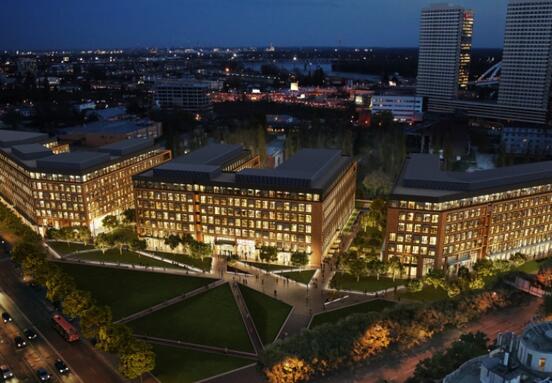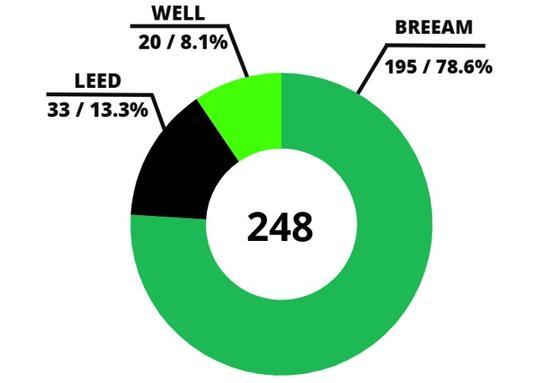The Price of Premium: Is Your Business Paying Too Much?
The recent leasing of premium office space for the new Slovak Ministry of Tourism and Sports in Bratislava highlights a crucial point for businesses seeking commercial premises: understanding true market value. While the ministry secured a modern, energy-efficient building in a prime location, the reported rent of nearly €20 per sqm/month (excluding common areas and energy) and an exorbitant €210 per parking space per month raises eyebrows. This significantly exceeds typical market rates for parking, which usually range from €60 to €150. For businesses, this case underscores the importance of rigorous market analysis. Paying a premium for location or a new build might be justifiable, but hidden or inflated costs for amenities like parking can quickly escalate your overall expenditure, turning a seemingly good deal into a financial burden.
Mastering the Lease Negotiation Process
The Ministry’s search process—checking state-owned capacities, issuing a call to 11 private landlords, and conducting physical inspections—demonstrates a structured approach. However, the final terms reveal that even a thorough selection process doesn't guarantee the best deal. This is particularly true in markets lacking transparent public procurement rules for real estate, as noted by analysts regarding the state sector in Slovakia. For businesses, this means proactive and aggressive negotiation is paramount. Do not rely solely on the initial offers. Instead:
Why Competitive Bidding Matters (Even if Not Required)
Even if not legally obligated to hold a competition, soliciting multiple detailed offers from various landlords creates leverage. This allows you to compare not just headline rent, but also all associated costs, terms, and conditions, fostering a truly competitive environment.
The Pitfalls of Poorly Negotiated Terms
Analysts observe that about half of current state institution leases in Slovakia feature rents higher than current market prices. This is often a result of either automatic indexation clauses or poorly negotiated conditions at the contract's outset. Businesses must meticulously review every clause, especially those related to rent increases, service charges, and additional fees. Future-proofing your lease agreement against unexpected cost escalations is vital for long-term financial stability.
Energy Efficiency vs. Ancillary Charges: A Balanced View
One benefit cited for the ministry’s choice was the energy efficiency of the new building, potentially leading to savings on utility bills. This is a legitimate consideration for any business looking to reduce operational costs and align with sustainability goals. However, the ministry's high parking costs illustrate that energy savings can be easily overshadowed by other inflated ancillary charges. When evaluating a property, always calculate the total cost of occupancy, including rent, service charges, utilities, parking, and any other fees. A building might be energy-efficient, but if its parking or common area fees are disproportionately high, your overall savings could be negligible or non-existent.
Developing a Robust Real Estate Strategy for Your Business
The absence of central guidelines for state authorities on office space selection and pricing contributes to inconsistencies and potentially inflated costs. For private businesses, this highlights the necessity of having a well-defined internal real estate strategy. This strategy should outline your criteria for location, size, budget, specific amenities, and a clear negotiation protocol. A proactive strategy ensures that your real estate decisions align with your business objectives, minimize costs, and secure optimal working environments for your employees.
Key Takeaways for Businesses Seeking Office Space
The Slovak Ministry’s office lease serves as a valuable case study for any business navigating the commercial real estate market. To secure the best terms for your next office or warehouse space, remember to: conduct thorough market research to understand fair prices; engage in robust, competitive negotiations; scrutinize all ancillary costs beyond just the per-square-meter rent; and develop a comprehensive internal real estate strategy to guide your decisions. By doing so, you can avoid common pitfalls and ensure your business secures a space that offers true value and supports your growth.
Source: property-forum.eu







